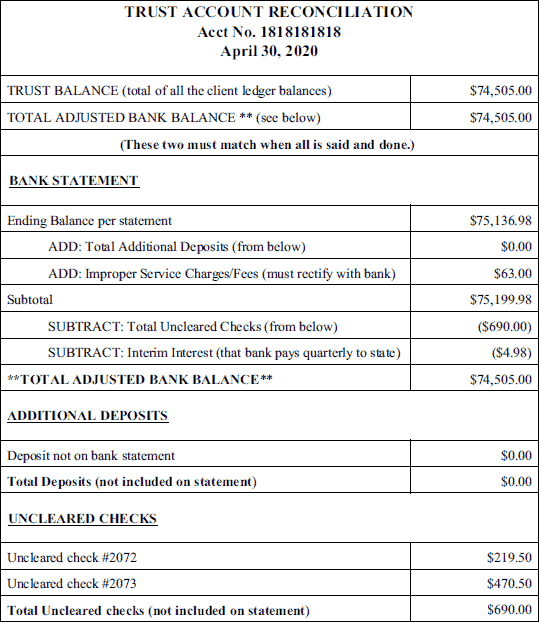
Even if you've never balanced your checkbook, remember that the funds in your trust account belong to others. To protect their money, you must carefully reconcile your internal trust account records with your bank's statements each and every month.
To do so, you must adjust the bank's reported balance to account for deposits and disbursements that never made it onto the statement as follows:
➤ Identify All Deposits Which Are Not Listed on the Bank Statement
➤ Calculate the Total of All of Unlisted Deposits
➤ Identify All Checks/Disbursements Which Are Not Listed on the Bank Statement
➤ Calculate the Total of All Unlisted Checks/Disbursements
➤ Add the Subsequent Deposits to the Balance Reported on Your Bank Statement
➤ Subtract the Subsequent Checks/Disbursements from the Balance Reported on Your Bank Statement
The balance reflected on your internal ledger should equal the adjusted bank balance, resulting in a monthly reconciliation report which looks like this:

You must retain this reconciliation report and the underlying data (i.e., the trust ledger, bank statements, copies of canceled checks, deposit slips and receipts) for however long your jurisdiction requires. In most places, that's a period of five to seven years. If you use accounting software to maintain your ledgers, properly backing up your data will preserve most of your internal records forever. The beauty of computer-generated data is that you will be able to access and print a variety of reports at the push of a button.
Despite what the rules may say, you would be wise to retain this data indefinitely. If you've obeyed your Ten Commandments of Trust, this will prove the pristine nature of your account.